





Diet at dysbacteriosis
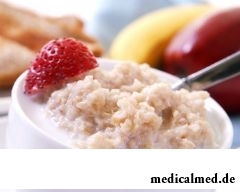 исбактериоз is very unpleasant phenomenon which can accompany, and also aggravate the course of different diseases of digestive tract. The main symptoms of dysbacteriosis are abdominal pains, bystry fatigue, a meteorism, swelling, allergic reactions, ponosa or locks.
исбактериоз is very unpleasant phenomenon which can accompany, and also aggravate the course of different diseases of digestive tract. The main symptoms of dysbacteriosis are abdominal pains, bystry fatigue, a meteorism, swelling, allergic reactions, ponosa or locks.
In addition to treatment by means of medicines patients need to adhere also to a diet at an intestinal dysbiosis.
Reasons of development of dysbacteriosis
In intestines there is the microflora – one bacteria (lactobacilli, bifidobacteria and others) take part in processing of food, and others are presented by opportunistic flora, that is interfere with digestion processes. If between these bacteria the balance is observed, the human body functions in the normal mode, but if good bacteria perish, and opportunistic begin to breed strenuously, dysbacteriosis develops.
Most often dysbacteriosis develops owing to:
- Treatments by means of antibiotics;
- Disturbances of a diet;
- Serious illnesses in digestive tract;
- Lack of vitamins;
- Defective food allowance.
The menu of a diet at an intestinal dysbiosis
The food allowance of patients with dysbacteriosis is influenced considerably by the reasons of emergence of a disease therefore recommendations of the general character for a diet at dysbacteriosis are included below.
The prohibited products:
- Any products which provoke fermentation;
- Crude vegetables;
- Acid berries and fruit;
- Sorrel, spinach;
- The vegetables containing many essential oils (a radish, a garden radish, onions, garlic);
- Mushrooms;
- Hot spices and seasonings;
- Smoked products;
- Marinades;
- Strongly cold dishes;
- Sweets.
If there is a tendency to locks, it is also necessary to exclude strong fish and beef-infusion broths, an offal or other products which contain a lot of cholesterol from a food allowance.
The following products are resolved:
- Boiled vegetables;
- Low-fat fish and meat;
- Dogrose broth, kissel, tea;
- Bread with bran (white loaf is not recommended);
- Vegetable oils;
- Fermented milk products;
- Kashi (gerkulesovy, buckwheat, wheat);
- Eggs;
- Bilberry.
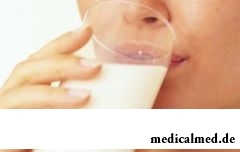 If locks are observed, the diet at an intestinal dysbiosis has to contain a lot of mechanical and chemicals which stimulate motor function of intestines. It is necessary to exclude from a dish diet, the strengthening processes of fermentation and rotting in intestines containing the substances irritating a liver stimulating secretion of a stomach and pancreas, bile secretion.
If locks are observed, the diet at an intestinal dysbiosis has to contain a lot of mechanical and chemicals which stimulate motor function of intestines. It is necessary to exclude from a dish diet, the strengthening processes of fermentation and rotting in intestines containing the substances irritating a liver stimulating secretion of a stomach and pancreas, bile secretion.
Food is allowed to be steamed, cooked or baked, it is desirable without crushing products.
The approximate menu during locks:
- First breakfast: boiled fish or soft-boiled eggs, buckwheat and tea with one spoon of sugar.
- Second breakfast: 250 milliliters of juice or one apple, one teaspoon of natural honey which needs to be rassosat quickly in a mouth.
- Lunch: boiled meat of chicken and lenten soup with potatoes, boiled potatoes, carrots and beet, dried fruits compote.
- Afternoon snack: grated carrots or puree beet salad, dogrose broth.
- Dinner: cottage cheese pudding or just house cottage cheese, boiled vegetables, tea.
- Before going to bed: kefir.
For day it is possible to eat rye bread or bread with bran (150 grams) and sugar in number of one tablespoon. From fats it is authorized to use one tablespoon of vegetable oil and one teaspoon of butter.
The diet at an intestinal dysbiosis at children excludes any fried, spicy, smoked and greasy food from a food allowance of the child. It is also forbidden to use a lot of sweet, as a rule, children hard manage that.
When feeding the child it is necessary to consider three rules:
- It is necessary to introduce a regime of meals, having excluded, thus, frequent having a snack;
- For the best assimilation food has to be warm;
- In food the age of the child has to be considered.
Each person has not only unique fingerprints, but also language.

People know that thermal sources have salutary force long ago. Treatment by natural waters is one and...
Section: Articles about health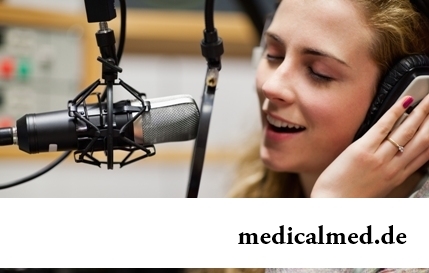
All like to sing. Small children with pleasure are engaged in a vocal, not especially thinking of hit in a melody. Adults most often hesitate, being afraid to show lack of talents in this area, and it is vain: singing is very useful for health....
Section: Articles about health
"Epilepsy" doctors made the diagnosis in antique times. Displays of an illness and pattern of its development are very well studied. However for nonspecialists this disease remains to not less mysterious, than in the ancient time. Many delusions are connected with epilepsy, and it sometimes very unpleasantly affects quality of life of patients and their relatives. In this article we will try to dispel the most known of similar myths....
Section: Articles about health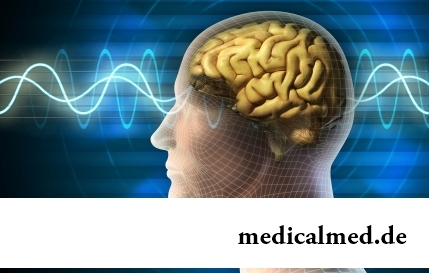
The brain of the person is studied not one hundred years, but the quantity of the riddles connected with this body increases rather, than reducing...
Section: Articles about health
Such trouble as the milkwoman's attack, at least once in life happened almost to each woman. Prevalence of a disease is explained by the fact that the causative agent of an illness belongs to the so-called opportunistic microflora living on mucous an obol...
Section: Articles about health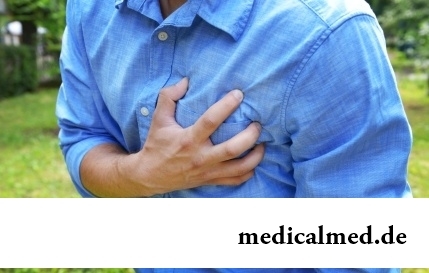
For the time being the perspective of heart diseases seems to most of people remote and foggy. But sooner or later practically each adult faces extremely unpleasant feelings: sudden stethalgia. To be consoled at this time in a thought of what for a heart attack still early, will hardly turn out: if the person is impressionable, he, as a rule, has feeling of panic and fear of fast death. And meanwhile, it is very often possible to confuse pains with cardiac pains невралгическог...
Section: Articles about health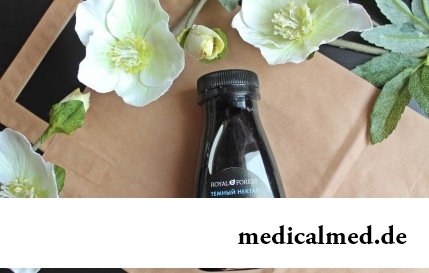
The state of health of the person in many respects depends on food. The organism will well function if during food it are...
Section: Articles about health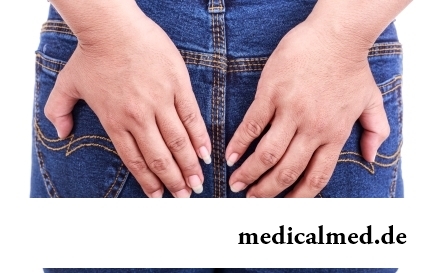
Hemorrhoids – extremely widespread disease. Periodically arising inflammations and bleeding of hemorrhoidal nodes cause serious discomfort to nearly fifteen percent of adults. Meanwhile, having a clear idea of the aggravation reasons...
Section: Articles about health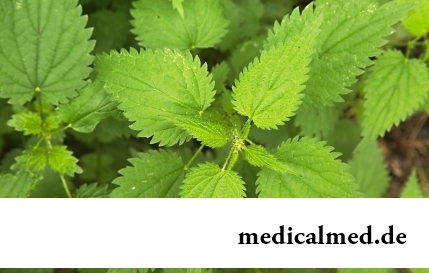
What is in our understanding weeds? It plants which are considered to be suitable only for compost pits and feeding of animals. Meanwhile, among the weeds growing literally under legs it is possible to find the mass of the officinal herbs having invaluable advantage for human health. It is possible not only to be treated by most of them, using as broths, tinctures, compresses, but also to accept in food as usual products. Let's consider 8 widespread and often ignored by people...
Section: Articles about health
Bulimia and anorexia, are heavy deviations of a feeding behavior, become a cause of death of patients much more often than all others...
Section: Articles about health
The sclera and mucous membrane of an eye are intensively supplied with blood vessels which problem - to saturate nervous tissues of body with nutrients and oxygen. In a normality vessels are almost not noticeable, however at their expansion (owing to истонч...
Section: Articles about health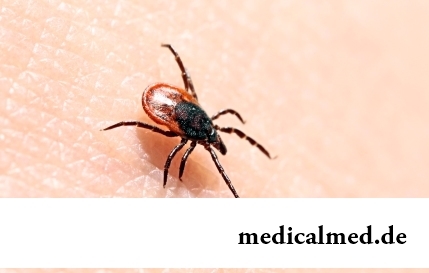
Tick-borne encephalitis – one of the most dangerous viral diseases which causative agents transfer and is given to people by ixodic mites. These are the small blood-sicking insects living in the considerable territory of our country. The person bitten by a tick can catch also erlikhiozy, bartonnelezy, babeziozy, mycoplasmosis and Lyme's disease. As well as encephalitis, these illnesses affect the central nervous system, and as specific antiviral therapy does not exist, the forecast very to a neuta...
Section: Articles about health
A lot of things depend on a condition of a backbone in a human body, a backbone - not only a support for a body, it also contain...
Section: Articles about health
Statistically, at the address to doctors seven of each ten patients complain of a headache. Actually it is much more people who are periodically feeling unpleasant feelings such. Many people, apart from a headache the reason for serious fear...
Section: Articles about health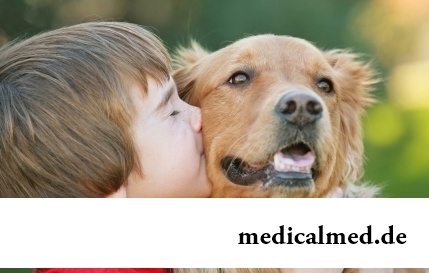
Is told about advantage of domestic animals for development of the child much. But many parents nevertheless do not hurry to bring pets as are afraid that they can do harm to health of children. What troubles can really trap kids and how to make joint life of a family and domestic animals comfortable and safe?...
Section: Articles about health
Scientists always aimed to offer fundamental explanations for medical problems. Their theories formed the basis of modern methods is treated...
Section: Articles about health
Diapers for adults – individual one-time means of hygiene which in some situations is irreplaceable and from such situations any person is not insured. Though nobody perceives need of their use with enthusiasm, however without it to a sra...
Section: Articles about health
Smack in a mouth can arise in the natural way – as a result of lack of morning hygiene or reception of the corresponding food. However in certain cases its existence is a sign of certain pathologies, and allows to reveal an illness at an early stage. Depending on character of aftertaste – acid, salty, bitter, sweet – distinguish also diseases which accompany it....
Section: Articles about health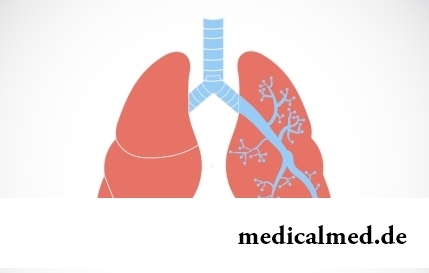
They say that to ensure health and longevity of people it is obliged. Really, at competent approach to these questions, we will pass...
Section: Articles about health
For the city dweller the fitness is the most convenient sport. It is enough to acquire the subscription to the gym to get access to various apparatuses and an opportunity to train under the leadership of the experienced consultant. Many consider fitness on...
Section: Articles about health
Each of us repeatedly noticed that the people having the same passport age are sometimes not similar on one-years at all. One at the age of 40-45 years already looks almost an old man, and another and in 60 is young, vigorous and full of life. The matter is that the condition of our health depends not on the number of the lived years, and on degree of safety of an organism. This factor also defines biological age of the person....
Section: Articles about health
All of us, unfortunately, should face flu nearly an every year. It would seem, so frequent disease has to be study...
Section: Articles about health
Women quite often suffer from complexes concerning the sizes of the bust. Strangely enough, not too modest, and excessively curvy shapes become the reason of sincere discomfort sometimes. Except psychological problems, a big bust sometimes with...
Section: Articles about health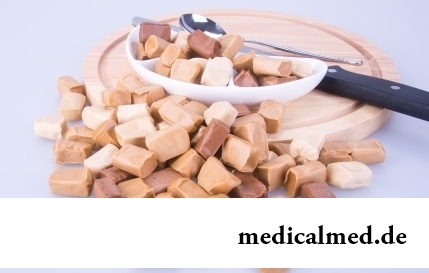
Food with the increased content of sugar is attractive to most of people - it is scientifically confirmed fact. Business here not in intemperance or dissoluteness: the sweet food is associated since childhood with feeling of rest and safety which tests the kid when it absorbs maternal milk. Besides, getting into a human body, sugar strengthens production of "happiness hormones" which all of us so need. And still life of sweet teeth seldom happens cloudless: their too big loss...
Section: Articles about health
The number of long-livers is very small. One person from 5 thousand lives up to age of 90 years, and the centenary boundary steps only about...
Section: Articles about health
More than a half of the married couples which faced prostatitis – leave. The new broadcast "Female View of Prostatitis" will help to learn – whether you have or your relatives problems....
Section: Articles about health
Eyes – unique body on the structure thanks to which the person obtains about 80% of information on the world around: about a form, color, size, the movement, and also many other parameters of objects or phenomena. But whether much we know about the most valuable sense body which, according to the scientist Sechenov, provides us about one thousand various feelings a minute? Let's consider 10 most surprising facts about eyes and sight....
Section: Articles about health
